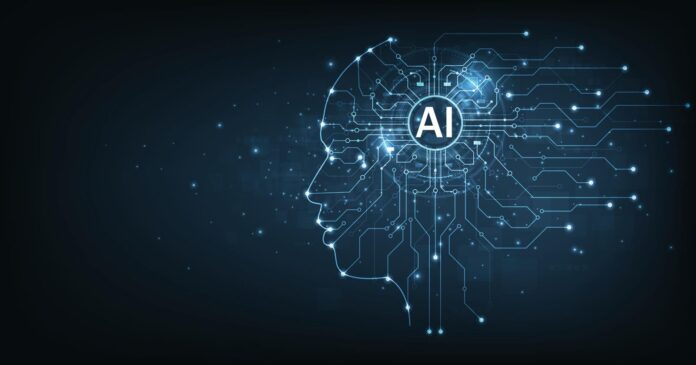As the world marches into the artificial intelligence era, the role of the programmer is evolving. No longer confined to lines of code and syntax mastery, today’s developers are increasingly becoming “prompters” – skilled at guiding AI to achieve desired outcomes through input. This transformation is fundamentally reshaping the landscape of software development and raising the question: What does it mean to be a programmer when machines are also writing code?
AI and Human Blending For Coding
The Evolution of Programming: From Coder to AI Manager
For decades, the craft of programming revolved around learning specific languages, writing efficient algorithms, and debugging code line by line. Programmers spent hours managing syntax, optimizing performance, and understanding intricate software architecture. Their proficiency was largely defined by their ability to master complex programming languages and solve problems algorithmically.
However, the rise of generative AI tools like GitHub Copilot has shifted the programming paradigm. Instead of writing code line by line, developers are prompting these AI tools with high-level descriptions of what they want to accomplish. AI-generated suggestions then provide chunks of code or even entire modules. As a result, the programmer’s value proposition is transitioning from manual code generation to crafting precise, insightful prompts that maximize the AI’s potential. The new-age developer is less of a hands-on coder and more of a strategic conductor, orchestrating AI to produce optimal outputs.
Impact on the Software Development Lifecycle
The impact of programmers becoming prompters extends beyond individual productivity. It has profound implications for the entire software development lifecycle (SDLC). For one, the time needed for initial coding and prototyping is significantly reduced. AI tools can generate functional prototypes quickly, allowing developers to iterate on ideas without the bottleneck of manual coding. This accelerates the ideation and experimentation phases of software development, facilitating rapid innovation.
Quality assurance and debugging also see changes in this new paradigm. While the AI can generate code, the responsibility of testing, validating, and ensuring its robustness still lies with the human programmer. As such, developers must shift focus from simply debugging syntax errors to scrutinizing the AI’s output for logical flaws, security vulnerabilities, and adherence to best practices. This means that programmers must adopt new strategies to validate and refine AI-generated code, effectively becoming both teachers and evaluators of the AI’s work.
Challenges and Ethical Concerns
While the shift from programmers to prompters holds promise, it also brings challenges. One major concern is the risk of over-reliance on AI, leading to a decline in fundamental programming skills.
There are also ethical concerns. AI models, including those used for code generation, are trained on vast datasets sourced from the internet. This raises questions about the ownership of the generated code and the potential for IP infringement. If an AI generates code that closely resembles an existing proprietary solution, it could lead to legal disputes and complications around software licensing. Additionally, biases present in the training data could be inadvertently introduced into AI-generated code, potentially propagating harmful practices or perpetuating biases in software applications.
To mitigate these risks, programmers must remain vigilant and proactive. Developing a deep understanding of the AI’s training data, its limitations, and the need for ethical oversight is crucial. This new paradigm requires a shift in mindset: programmers must not only be skilled prompters but also conscientious overseers of the AI’s outputs, ensuring that generated code is ethical, secure, and aligned with best practices.
The Future of Programming: A Hybrid Approach
Looking ahead, the shift towards prompting does not necessarily spell the end of traditional programming. Instead, it heralds a hybrid approach where programmers leverage AI to enhance their capabilities. Those who succeed in this new landscape can seamlessly blend traditional coding skills with the ability to harness AI tools effectively. As the boundaries between coding, designing, and ideation blur, the concept of a ‘developer’ may shift into that of a ‘solution architect,’ someone who can leverage AI not just for code generation, but also for product ideation, system optimization, and delivering holistic, innovative solutions that address complex human needs.
On a practical level, prompting allows programmers to focus on higher-level concerns. Instead of spending time on repetitive, boilerplate coding tasks, programmers can direct their efforts toward system architecture, integration, and ensuring the generated code meets design principles. This can lead to increased productivity and a reduction in the tedium that often accompanies traditional coding work.
This evolution may also democratize programming. If AI can handle much of the syntax and low-level code generation, the barrier to entry for software development could be lowered. Individuals from non-technical backgrounds may be able to contribute meaningfully to software projects by leveraging their domain knowledge to craft effective prompts. This could lead to a broader, more diverse range of voices in the technology space, ultimately fostering more innovative and inclusive software solutions.
Conclusion
The ongoing transformation of programmers into prompters represents a fundamental shift in the software development paradigm. In the AI era, the emphasis is moving from writing code to guiding intelligent systems to generate code. This evolution offers exciting opportunities for increased productivity, greater innovation, and broader participation in software creation. However, it also comes with challenges that require careful consideration, including ethical concerns and the risk of skill erosion.
To thrive in this evolving landscape, programmers must adapt, embracing both the art of prompting and the responsibilities that come with guiding AI-generated outputs. By doing so, they can unlock new possibilities in software development and help shape a future where human ingenuity and artificial intelligence work hand in hand to solve complex problems.




